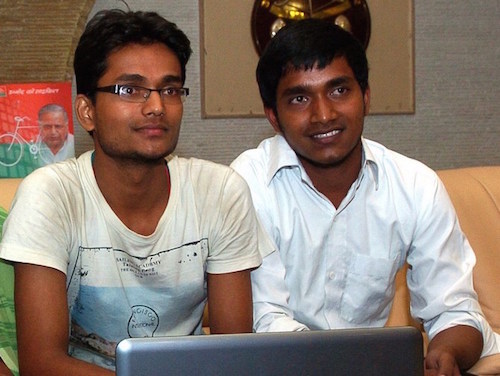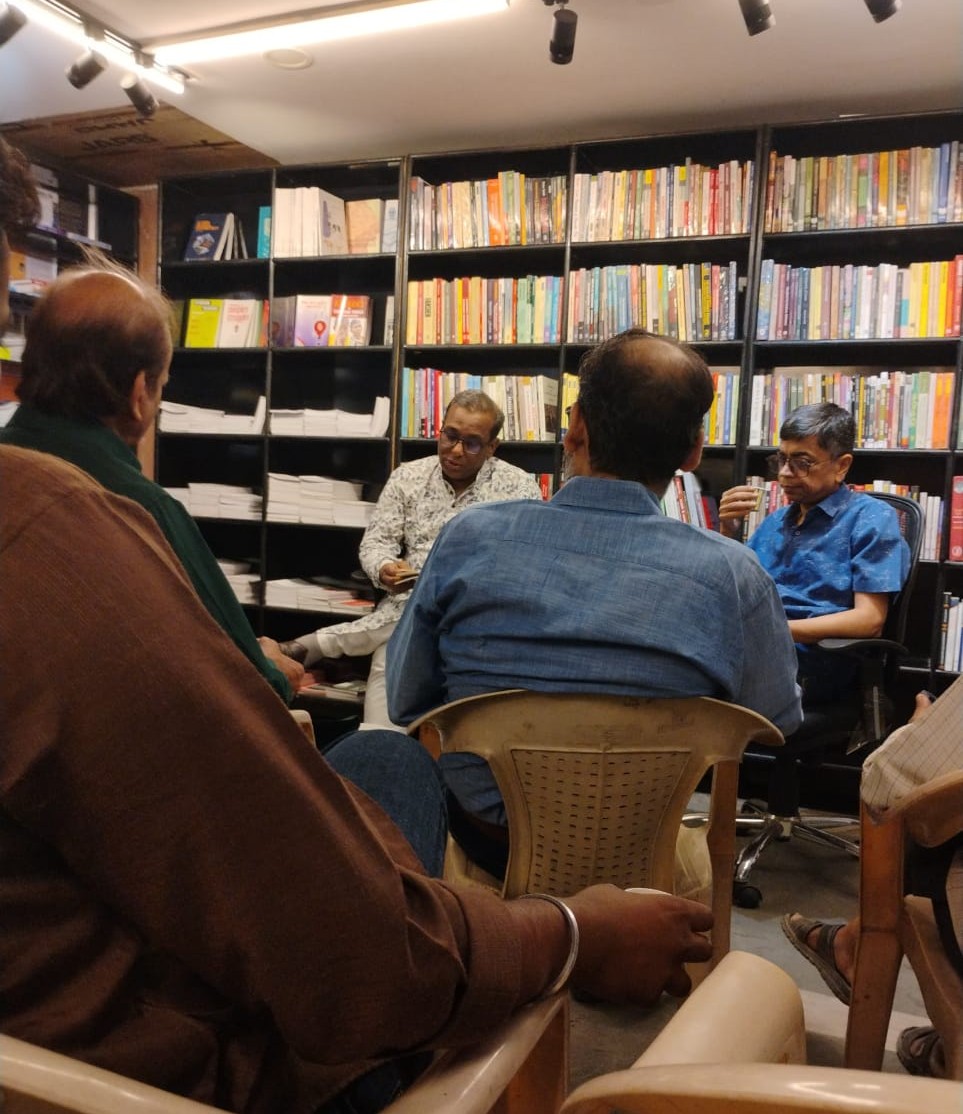The outstanding performance of two underprivileged brothers, Raju and Brijesh Saroj, of Rehua Lalganj in Uttar Pradesh’s Pratapgarh district in the highly competitive IIT entrance test has earned loud appreciations from home and abroad. Raju secured 167th and Brijesh 410th ranks in the merit list of the test. Their father Dharamraj, a mill-hand in Surat, Gujarat, earns a monthly sum of Rs 12,000 for a family of seven. When people became aware of Dharamraj’s inability to finance his son’s expensive education in IITs, pledges of support poured in from all over.
The day their success story appeared in a widely circulated English daily, I, both excited and worried, posted a comment online that went something like this: “Government should immediately provide security, safety and protection to the two achievers. Their achievement in the IIT entrance tests have made them more vulnerable in the eyes of their jealous neighbours/countrymen from other castes.” Within half an hour, my inoffensive post was deleted from the public forum. This perhaps demonstrates the level of orthodoxy in society and the hatred a section of the people nurses against the caste to which these underprivileged achievers belong.
By their success, they have simultaneously created admirers and enemies. While they chase their dreams they will face harassment, violence and humiliation in whichever school they get admission. Prejudices of teachers and hatred of fellow students have ruined careers of many underprivileged students, both girls and boys. Even in the national institutes of excellence, they are deliberately given lower grades and end up with no avenue for redress.
When, three days after his IIT results were released, Dharmaraj’s house was vandalized by miscreants, my apprehensions turned out to be justified. The district administration rushed policemen to Rehua Lalganj to guard Dharmaraj’s thatched house.

Seventy-nine years after he put them down on paper, B. R. Ambedkar’s thoughts in Annihilation of Caste (May 1936) are still relevant: “The effect of caste on the ethics of the Hindus is simply deplorable. Caste has killed public spirit … Caste has made public opinion impossible. Virtue has become caste-ridden and morality has become caste-bound. There is no appreciation of the meritorious. Suffering as such calls for no response. There is charity but it begins with the caste and ends with the caste. There is sympathy but not for men of other caste … The capacity to appreciate merits in a man apart from his caste does not exist in a Hindu. There is appreciation of virtue but only when the man is a fellow caste-man.”
On 8 March 2015, a headline read, “Dalit girl set on fire for appearing in intermediate exam by guys who’ve been failing it”. Three days earlier, the unidentified girl had been set on fire in the Diwan-Tola hamlet of Patthardewa village, in Uttar Pradesh’s Kushinagar district. Lying in the hospital bed with 70 per cent burns, she identified her attackers as Dhiraj Yadav, Arvind and Dinesh, along with their father Ram Pravesh Yadav. All four accused barged into the her hut while she was cooking, poured kerosene on her and set her on fire. “They didn’t like me pursuing education because they were failing in school every year.” (Mail Today, Lucknow, 6 March 2015) This anger against the underprivileged pursuing education runs deep in the psyche of Hindus anywhere under the sun. The victims can expect redress from nobody on Indian soil – be it the administration, the police, or the judiciary. Miscarriage of justice in all these atrocities is almost a foregone conclusion.
Pradeep Kumar, a member of a Scheduled Caste (Khatik), topped in all his mechanical engineering semesters at Kalpana Chawla College of Engineering & Technology, Hissar, Haryana. This enraged his classmates, Rajkumar and Kalyan, both Jats. They felt humiliated by the brilliance of this Khatik. One day, the Jats stopped him at the college gate and, without any provocation, pumped four bullets into him. Pradeep died on the spot.
On 12 September 2006, for the first time ever, the Ministry of Health & Family Welfare, Government of India, constituted a three-member committee, comprising Prof S. K. Thorat, chairman, University Grants Commission; Dr K.M. Shyam Prasad, vice-president, National Board of Examinations; and Dr R. K. Srivastava, director-general of Health Services, to investigate allegations of prejudice and discrimination against SC and ST students at the All India Institute of Medical Sciences (AIIMS), considered the pride of national capital, Delhi. The committee reported harrowing tales of dehumanization and violence. Referring to the suicide of a student, the Thorat Committee observed that “what surprises us is the guts and perseverance shown by the rest of the Dalit and Adivasi students who have to endure utmost humiliation, dehumanization and violence and yet survive in a campus that is supposed to train them to become doctors to serve the humanity.”
A bright student from Madhya Pradesh, Bal Mukund Bharti, who happened to be a Chamar, had been driven to suicide in the AIIMS hostel. The authorities had dismissed foul play, saying he “went into depression as he was not able to cope with the rigorous academic environment of AIIMS”.
The Thorat Committee added that “the SC/ST students did not receive the kind of support that the other students received from their teachers … Given the dependence of students on teachers for learning and skill, the lack of adequate support to the SC/ST is reflected in performance and psychological problems, which further leads to lower performance [levels] and frequent failures.” The committee made a scathing observation: “The students belonging to reserved categories are failed always. Last year, no Scheduled Caste students were allowed to clear first-year final professional examination. For instance, Sujo had got 70 percent in 1st professional and 55 percent in 2nd professional examination, but was not cleared in last professional examination. Due to this, he suffered from mental depression and received psychological treatment.”
Needless to say, the Hindu faculty members as well as students imbibed the orthodoxy in the homes where they were born, in the culture in which they were nurtured and in the environment where they were brought up. This has come in the way of social harmony and solidarity. Thanks to the caste system, every Hindu under the sun possesses a licence to harm, humiliate, outrage, even kill any Dalit with impunity and equanimity.
The AIIMS administration didn’t cooperate with the Thorat Committee as it set out to investigate the allegations. The then director Dr Venugopal refused to even respond to the written notice sent by Secretary, Higher Education department, Government of India, asking for a status report on the cases of casteist discrimination. Finally, when the Thorat Committee had its way and filed a report suggesting measures to bring an end to the discrimination and harassment, the government did not take any action.
AIIMS isn’t the only campus where SC and ST students suffer and die. The suicide note recovered from Jaspreet Singh, a student of Government Medical College, Chandigarh, “charged his Head of the Department (HOD) with deliberately failing him and threatening to fail him over and over”. Seven months later, a three-member group of senior professors re-evaluated Jaspreet’s “answer sheet and found that he had in fact passed the test”. A year later, his young sister, a student of the Bachelor of Computer Application course, also committed suicide, heartbroken at the injustice done to her brother. According to the report, “His HOD told him [Jaspreet] that he might have entered medical college using his Scheduled Caste certificate but he would not go out with a degree. The professor failed him in community medicine, a crucial paper, and told him, according to the suicide note, that he would not let him pass. Jaspreet had set his heart on an MD degree from the prestigious Post Graduate Institute of Medical Education and Research in Chandigarh. His HOD’s remark shocked him and cut short that dream. His distraught father Charan Singh said, “I have no reason to live anymore.” The doctors—Rajesh Kumar, Amarjeet Singh and Arun Kumar Aggrawal – the doctors who teach community medicine, the paper in which Jaspreet was failed – are still at large. (A. K. Biswas, “Merit a curse for dalits?”, Mainstream, Vol L, No 17, 14 April 2012; http://www.mainstreamweekly.net/article3390.html) No civilized country, save India, would spare criminals responsible for driving young students to desperation and suicide.
While Raju and Brijesh’s entering the haloed portals of an IIT is certainly a cause for celebration, a battle awaits them on campus – just to be on treated like everybody else and given the freedom to fufil their potential. Let’s hope there will be as many well-wishers among the faculty and fellow students as there were among the general public when their accomplishments made headlines.
Published in the August 2015 issue of the FORWARD Press magazine





